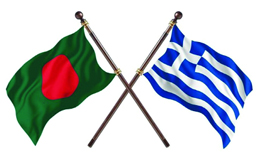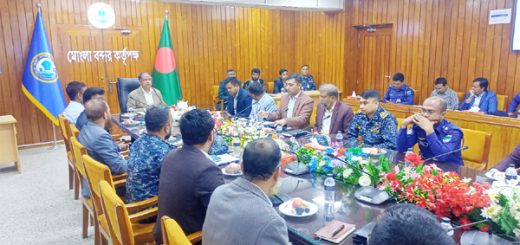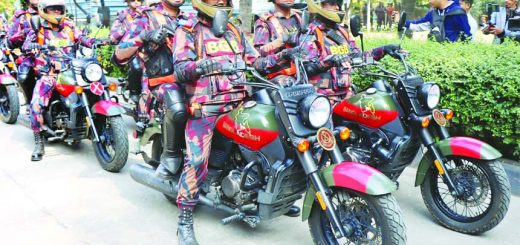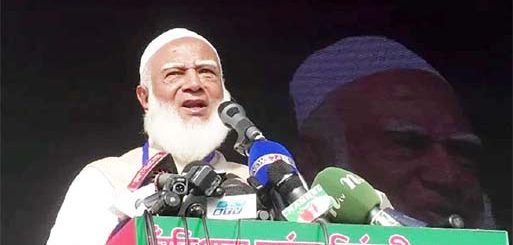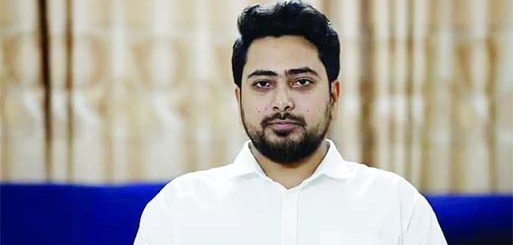Obituary: Barrister Mainul Hosein (1940-2023)

Syed Badrul Ahsan :
Between the late 1970s and early 1980s, Barrister MainulHosein steered the New Nation to impressive heights as a newspaper. It was part of the Ittefaq Group, but it nevertheless had an independent existence as a media outlet. It was MainulHosein’s baby which he guided from being a weekly to a daily. Over a period of a few years, the New Nation rose to being an English language newspaper with a readership second only to the Bangladesh Observer.
The credit was MainulHosein’s. On his watch, the New Nation brought into its fold such eminent journalists as WaheedulHaque, Hasan Saeed, Shihab Sarkar, AmanullahKabir, Arunabh Sarkar, Azizur Rashid Babu and a host of others. A good number of editors presided over the newspaper over a long stretch of time. In effect, the journalists who at different levels were employed at the New Nation were subsequently to branch out into other newspapers, evidence of the country’s English language media being an expansion of the journalism shaped at the New Nation.
MainulHosein was assiduously involved in the fortunes of the newspaper. His passing on Saturday is surely a tragedy for the New Nation. More importantly, it is also a question of how much of a vacuum Barrister MainulHosein leaves in the country’s political arena. Hosein, as was observed over time, not only was associated, along with his younger sibling Anwar Hossain Manju, with the Ittefaq Group following the demise of their father, the reputed Tofazzal Hossain Manik Miah, but also made sure that he had a role to play in politics.
There will always be questions about MainulHosein’s politics, at least of the sort he represented in the later stages of his life. But consider the beginning in 1973, when he won a seat in Parliament on an Awami League ticket. Bangabandhu Sheikh Mujibur Rahman, whom he addressed as Kaka (uncle) and who was closely associated with Manik Miah in the decisive days of the Six Point movement, affectionately brought him into politics. It was just as well, for Hosein was part of the younger crop of lawyers who could always be an asset for the Awami League and the government, particularly following the War of Liberation.
But when the Fourth Amendment to the Constitution was adopted by Parliament in January 1975, MainulHosein was unable to accept the constitutional changes consequent upon the amendment being adopted. Together with General M.A.G. Osmany, he exercised the option of resigning from Parliament. And so ended his first and only experience as a lawmaker. His decision was looked upon by many as an act of courage brought on by conviction. His belief in unfettered democracy, it was said, was behind his move to quit the legislature.
But then came the irony in the mid-1970s. Barrister MainulHosein linked up with the Democratic League, the political outfit cobbled into shape by KhondakarMoshtaq Ahmed. It was a move which did not go down well with political observers, for here was MainulHosein, a professed believer in democracy and the rule of law, associating with the man who had led the violent coup d’etat that left Bangabandhu and most of his family dead in mid-August 1975. The difference between his resignation from Parliament and his entry into the Democratic League was glaring. But, of course, the Moshtaq association was not to last, for Moshtaq and his party would soon slip into irrelevance and a quiet death.
In his post-Democratic League phase, though, MainulHosein recovered lost ground through reinventing himself as a campaigner for democracy in Bangladesh. The 1980s were a critical period for him, given that it was a time when a second military regime, this one led by General Hussein Muhammad Ershad, had foisted itself on the country. Hosein’s opposition to the regime manifested itself repeatedly through his articles in the Ittefaq and the New Nation as also in his public pronouncements. It mattered little to him that his brother was a minister in the Ershad dispensation. For Hosein, it was vital that the dictatorship get out of the way if the rule of law was to assert itself.
Barrister MainulHosein had controversies swirling around him where his politics was concerned. That did not worry him. His speech was blunt. His views, wherever and whenever he expressed them, were without ambiguity. Ambivalence of expression was not his style even though many were the people who failed to agree with him. When he took up the responsibility of an advisor in a caretaker government, he honestly believed that his role would bring about a change in the way governance worked, even if it was an unelected government he served. He would not long stay in that position, however. Back he would go to his newspaper, to his articles.
MainulHosein was a vibrant presence on the national political scene, though in the final years of his life illness and disappointment with the state of affairs had him lapse into silence. The proper tribute that can, and should, be his is that he was not afraid to speak up for the ideas he believed in. His commentaries, as evidenced by his articles over a long stretch of time, were focused studies of politics, a lawyer’s analyses of conditions enriched by thoughts rooted in journalism. Westminster-style democracy underpinned his politics. His readings in politics encompassed not just national affairs but also global happenings.
Sheer energy defined the being in Barrister MainulHosein. His convictions, often questioned by his detractors, were always a mark of his confidence in himself.
Syed Badrul Ahsan is a journalist and biographer. This write up was Published on 11 Dec 2023 in The Dhaka Tribune.

